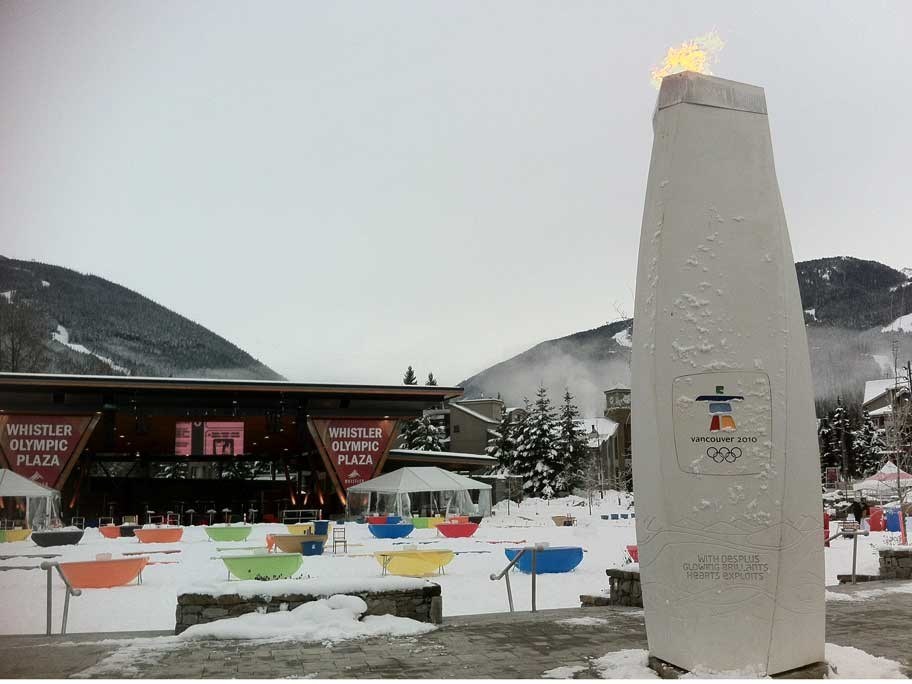Cumbersome, time-consuming and crippling business — that's how BC's liquor laws were described this week after the first private corporate booking of Whistler Olympic Plaza.
"I've never encountered that," said Stephanie Hoffmann, director of incentive programs for a California-based company that rented the space for a day. "Everybody's (usually) really happy to serve liquor."
It's not the first time the issue has been raised at the Olympic legacy space. Liquor laws were an issue with both the Jazz on the Mountain festival and the GranFondo bike race in the summer.
Hoffmann's company, which she preferred to keep anonymous, takes its customers on a destination trip every year. Whistler was their second winter destination in the 30 years of these trips.
Roughly 650 people were here from across North America for a six-night stay at the Fairmont and a week of jam-packed fun.
Hoffmann rented the plaza; the first time the Olympic legacy was rented to a private corporation, for an Olympic-themed day with her customers last week. After marching in their team colours from the Fairmont, the group played "Olympic games" in the plaza and had some lunch. But there were no hot toddies or beer for them to quench their thirst.
That's because in order to get a special occasion license, Hoffmann would have had to apply for that herself, transport the booze to the event and take on the responsibility for the liquor service.
"It was just too cumbersome," said Hoffmann. "I just didn't have the time."
Plus, she said, she pays big bucks to hire an event organizer. This should fall under their mandate.
Organizer Joanne Burns Millar, president of Pacific Destination Services who facilitated the corporate booking, couldn't agree more.
"It's really distressing when we as a destination are not able to over deliver on something that could be so amazing," said Burns Millar.
"That was the only disappointment."
The group had to go back to the Fairmont for the après. And though it all worked out, and the company was thrilled with their event, the laws need to be changed, she said.
"It's embarrassing at our destination to say we can't do this," she said.
"It's crippling our business. It is absolutely crippling our ability to deliver to international corporate conference and incentive groups.
Burns Millar supports a move afoot by a group of B.C. caterers who are trying to get the liquor policies changed.
They are arguing for a new class of liquor license similar to Alberta's Class D license, which can be issued to a qualified applicant who operates a business with a permanent kitchen facility to cater to private and public functions off premises.
This issue is on both Tourism Whistler's and the municipality's radar.
TW president and CEO Barrett Fisher said the liquor laws are a challenge, particularly for out of province groups, and Whistler doesn't need any roadblocks in the way to entice people to the resort.
"When you look at attracting large corporate groups... it's a very competitive marketplace out there," said Fisher.
"We are competing with destinations across Canada as well as throughout the U.S. as well as throughout the world and so we do need to ensure our liquor policies are competitive on that front.
"The existing liquor laws do create some limitations in attracting groups to host their special events in outdoor facilities that do not have existing liquor licensing."
The RMOW is spearheading a resort working-group of Special Occasion Licensing that includes representatives from TW, Whistler Blackcomb, the Whistler Arts Council, and local event producers among others. They met last month to go over recommendations that will then go to council early in the New Year.
The province did not return phone calls on this issue before deadline.




